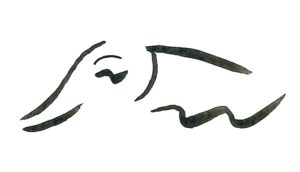- Marine Ecosystems and oRganisms reSEArch Lab

After conducting extensive research on spawning control, egg formation in the cuttlefish Sepia officinalis, and the general physiology of molluscs, I am currently leading work focused on the study of the nervous and immune systems in various aquatic models, including Sepia officinalis.
The cuttlefish is a short-lived species with few known pathologies. Currently, there is limited data on the innate immune system of this animal, and no immune effectors have been identified. To ensure the survival of its species, the cuttlefish deploys a complex strategy for gamete protection, both physical and chemical. In the female S. officinalis, numerous glands are involved in the formation of the egg capsule (oviduct gland, nidamental glands, ink sac, and posterior salivary glands). The capsule is responsible for releasing pheromones involved in the recognition of eggs by the female and in the aggregation of spawners in spawning areas. It also has antibacterial properties associated with the capsular proteins. In recent years, transcriptomic and proteomic approaches have been developed to characterize the proteome of salivary and nidamental glands, the white body, and hemocytes in the cuttlefish, highlighting immune factors. Currently, we are working on the evolution of the nervous and immune systems during post-reproductive degeneration.
Extensive work has been dedicated to the identification of de novo antibacterial peptides like the patented K4 peptide, or those derived from peptidomes or transcriptomes. In this context, antimicrobial peptides have been identified in the lionfish Pterois volitans and more recently in the hybrid M. edulis x M. galloprovincialis.
In a multidisciplinary context, in collaboration with computer scientists from UMR CNRS 6072 GREYC – Digital Science Research Laboratory at the University of Caen-Normandy, the PepTraq software was developed. This software allows for targeted multi-criteria searches from high-throughput databases: https://peptraq.greyc.fr/.
The collaborations established in recent years have allowed me to open up a wide field of research around the comparative study of the immune system and neurobiology. It is in this context that I have initiated two projects in collaboration with NTOU University in Taiwan. The Encore project aims to identify peptides and neuropeptides involved in the reproduction of the coral Euphyllia Ancora (a project funded by the CNRS). The CNP project, funded by the ANR (2025-2028), is focused on exploring the neuropeptidome of four reef-building corals with the objective of aquaculture and the sustainability of coral ecosystems.
Depuis 2025 Directrice du laboratoire MERSEA – Marine Ecosystems and oRganisms reSEArch Lab, UniCaen.
2020-2024 Directrice Adjointe du laboratoire BOREA « Biologie des ORganismes et Ecosystèmes Aquatiques » UMR CNRS-8067 , IRD-207, MNHN, SU, UniCaen , UA.
2017-2021 Co-Responsable du parcours « Biologie et Physiologie des Organismes » de la 3ème année de Licence Mention Sciences de la vie.
2012-2016 Membre élue au Conseil des Formations et de la Vie Universitaire (CFVU), UniCaen
Depuis 2010 Membre du CENOMEXA Comité d’éthique en Matière d’Expérimentation Animale
Depuis 2012 Membre du Comité de Sélection de la 68eme section
Depuis 2020 Membre du CNU 68ème section (membre nommé puis élue)
2024-2028 Membre élue à la Commission de la recherche UniCaen